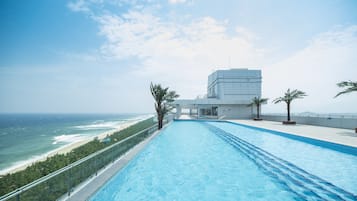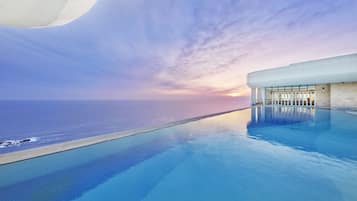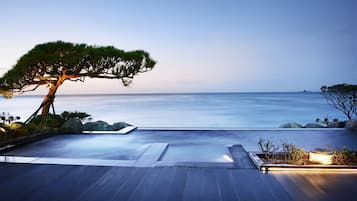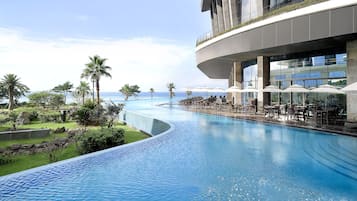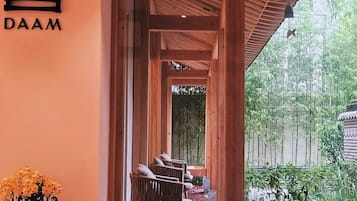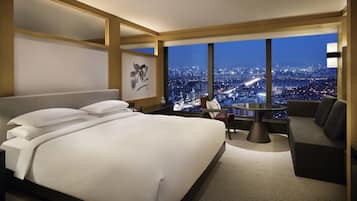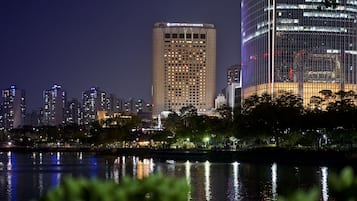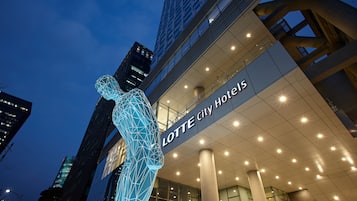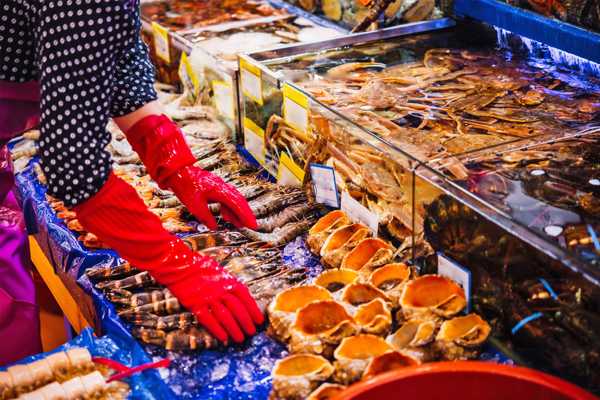Our guide to the best castles in Korea showcases magnificent strongholds of cultural and historical importance, both near Seoul and across the country, that are just waiting to be explored. Mountain fortresses were particularly prominent in Korea’s history, so you’ll find that these revered fortifications usually offer fantastic panoramic views.
From awe-inspiring castles from the Three Kingdoms period to romantic ruins, you can feel the weight of history in each location. Most of these are recognized both nationally and by UNESCO and are often surrounded by stunning countryside scenery and nature trails. Just imagine yourself as a warrior of antiquity as you stand on the ramparts of the best castles in Korea.
- 1
Suwon Hwaseong Fortress
Impressive fortress in the middle of a modern city

- History
- Photo
The impressive Suwon Hwaseong Fortress, surrounded by almost 6 km of imposing walls and defense towers, can be found in the heart of Suwon. The piled stone and brick fortification was a state-of-the-art meld of Asian and European knowledge when built in the 18th century and greatly influenced future Korean architecture and urban planning.
Take a day trip from Seoul to see this UNESCO World Heritage site up close. Walk along the ancient wall, try your hand at archery and visit the central Hwaseong Haenggung palace. Stop by the nearby museums while you’re here to discover yet more history and art, and observe some of the fantastic martial arts performances within the fortress grounds.
Location: 320-2 Yeonghwa-dong, Jangan-gu, Suwon-si, Gyeonggi-do, South Korea
Phone: +82 (0)31-290-3600
Map - 2
Namhansanseong Fortress
Fortified mountain top palace

- History
- Photo
Built by courageous Buddhist monk-soldiers as an emergency capital in the 17th century, the vibrant and intimidating Namhansanseong Fortress embodies the cultural styles of Korea, Japan and China. Able to house thousands of people inside walls that stretch 12 km, the self-contained palace is now a scenic attraction with many hiking trails surrounded by beautiful nature.
Especially popular when the trees turn resplendent with autumn colors, Namhansanseong is a UNESCO World Heritage site located a short journey from Seoul. Iconic photographic opportunities include the impressive West Command Mail and the grand pavilions of the Mangwolsa temple. Don’t forget to stop for Korean fried chicken at one of the many restaurants near the gates.
Location: 784-29 Namhansanseong-ro, Namhansanseong-myeon, Gwangju-si, Gyeonggi-do, South Korea
Open: Tuesday–Sunday from 10 am to 6 pm (closed on Mondays)
Phone: +82 (0)31-743-6610
Map - 3
Bukhansanseong Fortress
Rugged paradise for hikers and nature lovers

- Adventure
- History
- Photo
Every year, millions of visitors every year flock to enjoy the gorgeous landscape of the Bukhansanseong Fortress, built upon the steep slopes of Bukhansan to protect Seoul from foreign invasions. Now part of a national park, it’s easy to see why this granite, fortified city has become one of Korea’s most popular hiking neighborhoods.
Offering hiking routes between the castle’s gates for all levels of fitness and experience, Bukhansanseong is full of nooks to explore. Search for a secret gate, striking golden Buddhas at the Gugnyeongsa temple and mysterious ruins of a former water gate. It can be a perilous journey to the highest peak so be sure to plan your hike in advance.
Location: South Korea, Gyeonggi-do, Goyang-si, Deogyang-gu, 북한동 산1-1
Phone: +82 (0)2-357-9698
Map - 4
Jinju Castle
Storied fortress along the Namgang river

- History
- Photo
The Jinju Fortress overlooking the Nam river has been selected as a top 100 Korean tourist attraction in Korea for many years running, and it’s not difficult to see why. Also a designated South Korean historic site, this glorious fortress has seen its fair share of major battles over the years, as exhibited in the Jinju National Museum located within its expansive grounds.
Now lovingly restored, Jinju Fortress presents a picturesque sight with architecture and nature in harmony. The Chokseongnu pavilion, one of the grandest in Korea, is worth marveling at, as well as various temples and shrines, including one dedicated to the tragic heroine Nongae. When you’ve finished exploring, sample a Jinju specialty – marinated eel.
Location: 626 Namgang-ro, Jinju-si, Gyeongsangnam-do, South Korea
Open: Daily from 9 am to 6 pm
Phone: +82 (0)55-749-2480
Map - 5
Gongju Gongsanseong Fortress
Remains of ancient history

- History
- Photo
For majestic ruins seemingly lifted from a Korean folktale, the Gongju Gongsanseong Fortress is a must-see. This UNESCO World Heritage site was built to protect the ancient capital of the Baekje kingdom, making it over 1,000 years old. Though some original parts still stand, others have been painstakingly restored, such as the photogenic Manharu pavilion located beside a romantic lotus pond.
While Gongsanseong has great cultural significance, as shown by the changing of the guard exhibitions, it’s also the ideal place to appreciate the stunning view of the Geumgang river. During your visit, head to the Gongju National Museum to see thousands of artifacts and national treasures including the golden Geumjegwansik diadems once worn by the king of Baekje.
Location: 280 Ungjin-ro, Ungjin-dong, Gongju-si, Chungcheongnam-do, South Korea
Open: Daily from 9 am to 6 pm
Phone: +82 (0)41-856-7700
Map - 6
Geumjeongsanseong Fortress
Biggest mountain fortress in Korea

- History
- Photo
Though many of Korea’s mountain forts are huge, the largest one in existence today is the ancient and crumbling Geumjeongsanseong Fortress. The sprawling 17-km site proudly sits atop the highest mountain in Busan and provides a spectacular panoramic view of the surrounding landscape. You can hike up one of the many scenic trails leading to the peaks or comfortably ascend via aerial cableway.
The beautifully reconstructed gates provide perfect stopping points to admire the incredible vistas and there are a few detailed Buddha statues and cliff carvings to spot on your way. If you’ve time to spare, visit the expansive Geumgeong Park with its vast array of temples, shrines and museums at the base of the mountain.
Location: Geumseong-dong, Geumjeong-gu, Busan, South Korea
Phone: +82 (0)51-517-5527
Map - 7
Samnyeon Sanseong Fortress
Ruins of an ancient mountain fortress in central Korea

- History
- Photo
Today, the Samnyeon Sanseong Fortress that perches atop Mount Ojeongsan is mostly ruins, but it was once an impenetrable fortified city that valiantly defended important river traffic routes. Originally built in an archaic Silla style, you can see the results of the Korean government’s reconstruction efforts based on its remaining foundations and ancient records from its original construction in 406.
Secluded and generally tourist free, this is a great location for a hike when you want a commanding view of your surroundings. As you gaze upon the relics of destroyed gates and watch towers hidden amongst the greenery, take a moment to imagine how intimidating this legendary castle must have been over 1500 years ago.
Location: 산1-1 Eoam-ri, Boeun-eup, Boeun-gun, Chungcheongbuk-do, South Korea
Open: Daily from 9 am to 5 pm
Phone: +82 (0)43-542-3384
Map - 8
Gochangeupseong Fortress
A walled town with a cinematic history

- History
- Photo
When foreign invaders threatened the safety of the Jeollabuk-do province in the 1400s, local civilians banded together to build the Gochangeupseong Fortress out of any natural resources they could find. Within this walled town (also named Moyangseong Fortress) you can discover reconstructed government buildings along with peaceful ponds and fountains, providing a very pleasant walk.
Korean movie theater buffs might be interested to know that the beautiful scenery of Gochangeupseong is a popular filming location for historical dramas such as “Daejang Geum” and “The King’s Man”. If you’re wishing for good health, place a stone on your head and walk the perimeter – local legend says walking it 3 times will grant you access to heaven.
Location: South Korea, Jeollabuk-do, Gochang-gun, Gochang-eup, Moyangseong-ro, 1
Open: Daily from 9 am to 10 pm
Phone: +82 (0)63-560-8067
Map - 9
Ganghwasanseong Fortress
An island fortress in a strategic location

- History
- Photo
The Ganghwasanseong Fortress is a testament to perseverance. Located on Ganghwa Island (where North Korea is visible on a clear day), this stronghold was originally built using mud in the 1200s to protect against Mongol attacks. After several rebuilds (one of which is still ongoing), the castle is now an ideal spot for exploration and photo opportunities.
For awe-inspiring sights, visit the preserved fortress gates, especially the west gate where the historic Yeonmudang site stands. Stop for a moment to reflect upon the hundreds of soldiers who once trained here. No matter the time of year, Ganghwasanseong is a peaceful place rarely disturbed by tourists but consider visiting in spring when the grounds are awash with pretty cherry blossoms.
Location: 산43-1 Gwancheong-ri, Ganghwa-eup, Ganghwa-gun, Incheon, South Korea
Map - 10
Haengjusanseong Fortress
Legendary battlefield with a view to behold

- History
- Photo
Though the last castle in our guide, the Haengjusanseong Fortress is by no means the least. Sitting atop picturesque Deogyangsan Mountain, this modest wooden stockade was the site of a major Korean victory during the Imjin War of the late 1500s. It’s a long but rewarding walk to the peak – you’ll pass preserved pavilions and structures and enjoy panoramic views that just get better and better.
When you finally reach the top, pay your respects to the shrine dedicated to the battle’s triumphant general, then appreciate the stunning view toward Gimpo across the river. Don’t forget to visit the Memorial Hall to learn more about this historic event and peruse an intriguing weapon exhibition.
Location: 89 Haengju-ro 15beon-gil, Haengju-dong, Deogyang-gu, Goyang-si, Gyeonggi-do, South Korea
Open: Tuesday–Sunday from 9 am to 6 pm (closed on Mondays)
Phone: +82 (0)31-8075-4642
Map





